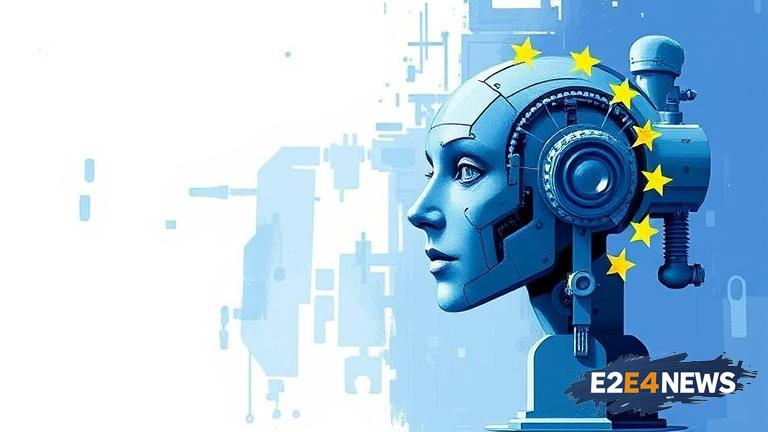The European Union has taken a significant step towards regulating the development and deployment of artificial intelligence models by publishing a code of practice for AI acts. This move comes as the deadline for implementing provisions related to general-purpose AI models nears. The code of practice provides guidelines for developers, deployers, and users of AI systems, aiming to ensure that these systems are developed and used in a way that is transparent, fair, and respectful of human rights. The EU’s efforts to regulate AI are part of a broader initiative to promote the development of trustworthy AI that benefits society as a whole. The code of practice covers various aspects of AI development, including data quality, algorithmic transparency, and human oversight. It also emphasizes the importance of ensuring that AI systems are fair, unbiased, and respectful of human dignity. The EU’s AI acts are designed to promote the development of AI that is aligned with European values, such as democracy, equality, and human rights. The code of practice is a key component of the EU’s AI strategy, which aims to make Europe a leader in the development of trustworthy AI. The EU’s approach to AI regulation is based on a risk-based approach, which means that the level of regulation will depend on the level of risk associated with a particular AI system. The code of practice is expected to have a significant impact on the development and deployment of AI models in the EU, particularly general-purpose AI models. These models are designed to perform a wide range of tasks and have the potential to be used in various industries, including healthcare, finance, and transportation. The EU’s regulation of AI is also expected to have implications for companies that develop and deploy AI models, as they will need to ensure that their systems comply with the code of practice. The deadline for implementing provisions related to general-purpose AI models is nearing, and companies are advised to take steps to ensure that their systems are compliant. The EU’s efforts to regulate AI are being closely watched by other countries, which are also considering how to regulate the development and deployment of AI models. The code of practice is a significant step towards promoting the development of trustworthy AI, and it is expected to have a major impact on the AI industry in the EU and beyond. The EU’s approach to AI regulation is based on a collaborative approach, which involves working with stakeholders from industry, academia, and civil society to develop guidelines and regulations that promote the development of trustworthy AI. The code of practice is a key component of this approach, and it is expected to play a major role in shaping the development of AI in the EU. The EU’s regulation of AI is also expected to have implications for the global AI industry, as companies that operate in the EU will need to ensure that their systems comply with the code of practice. The code of practice is a significant step towards promoting the development of trustworthy AI, and it is expected to have a major impact on the AI industry in the EU and beyond.
